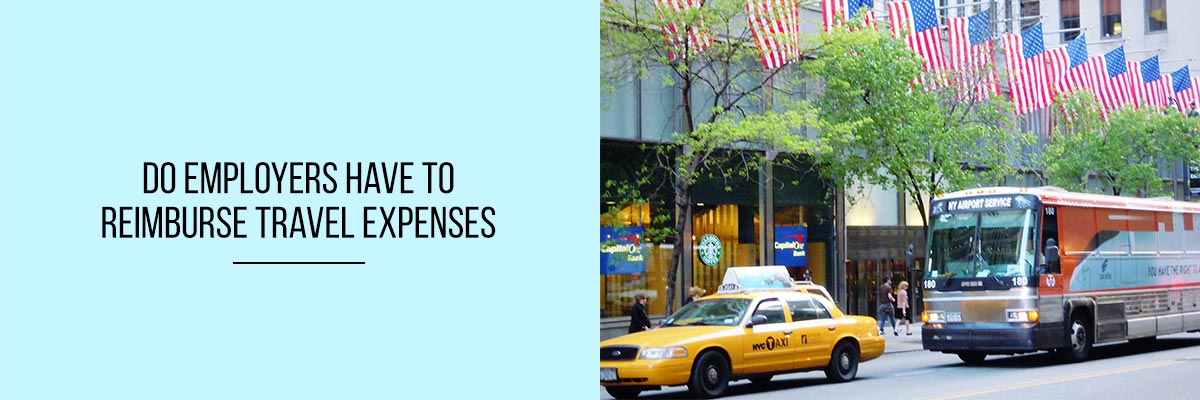Travel for business purposes is a common aspect of many jobs in the United States, whether it involves attending conferences, meeting clients, or collaborating with team members across different locations. However, the question of whether employers are required to give travel expense reimbursement to employees.



In this blog, we will explore the legal framework, employer policies, and best practices for travel expense reimbursement in the United States.
Legal Obligations For Travel Expense Reimbursement:
In the United States, there is no federal law that explicitly requires employers to reimburse employees for business-related travel expenses. The Fair Labor Standards Act (FLSA), which governs minimum wage, overtime pay, and other labor standards, does not specifically address travel expense reimbursement. However, some states may have specific regulations mandating reimbursement for certain expenses. For example, California requires employers to reimburse employees for all necessary expenses incurred in the course of their employment.
Employer Policies For Travel Expense Reimbursement:
While there may not be a legal requirement for travel pay or reimburse travel expenses, many employers choose to do so as part of their employee benefits package or as a matter of company policy. These policies typically outline what expenses are eligible for reimbursement, the documentation required, and the process for submitting expense reports. Employers should communicate these policies clearly to employees to avoid misunderstandings and ensure compliance.
Types of Travel Expenses:
There can be different types of travel pay for different travel expenses can include a variety of costs, such as transportation, lodging, meals, per diem, and incidentals. Employers may choose to reimburse these expenses in different ways, such as providing a per diem allowance based on the location and duration of the trip or reimbursing actual expenses incurred by the employee. It’s important for employers to establish consistent guidelines for reimbursement to ensure fairness and transparency.
Documentation and Reporting Of Travel Expense Reimbursement:
Proper documentation is essential when seeking reimbursement for travel expenses. Employees should keep detailed records of their expenditures, including receipts, invoices, and mileage logs. Employers may require employees to submit expense reports within a specified timeframe, along with supporting documentation. Failure to provide adequate documentation could result in delays or denial of reimbursement.
Negotiation and Agreements For Travel Expense Reimbursement:
Employers and employees may negotiate reimbursement arrangements as part of the employment contract or during salary negotiations. It’s crucial for both parties to clearly define expectations regarding travel pay upfront to avoid disputes later on. Employers should be transparent about their reimbursement policies, while employees should advocate for fair compensation for their business-related travel.
Tax Implications For Travel Expense Reimbursement:
Both employers and employees should consider the tax implications of travel expense reimbursement. In general, reimbursed expenses that are incurred for business purposes and properly documented are not considered taxable income for employees. However, employers should consult with tax professionals to ensure compliance with relevant tax laws and regulations.
Bottom Line:
While there may not be a federal legal requirement for employers to reimburse travel expenses in the United States, many choose to do so as a matter of policy or to attract and retain talent. Clear communication, consistent policies, and proper documentation are essential for ensuring fair and transparent reimbursement processes for both employers and employees. By understanding the legal framework, negotiating reimbursement arrangements, and adhering to best practices, employers and employees can navigate travel expenses with confidence and clarity.


